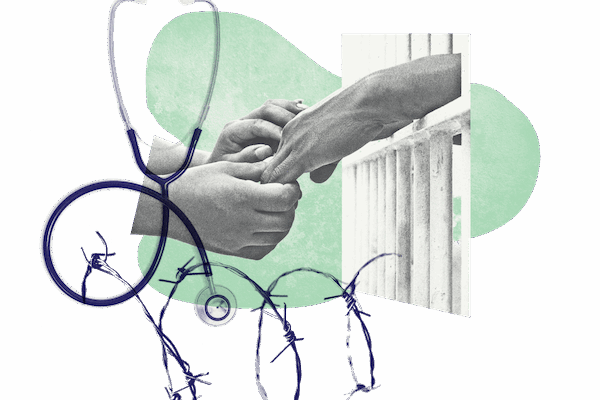Following a lawsuit from the US Department of Justice, the State of Maine has agreed to support children with disabilities and comply with federal law.
AUGUSTA – Today, the United States Department of Justice (DOJ) and the State of Maine announced that they had reached a settlement agreement to resolve a lawsuit alleging that Maine violated the Americans with Disabilities Act by failing to provide children with behavioral health services that would allow them to avoid unnecessary institutionalization.
After receiving a complaint filed by Disability Rights Maine (DRM) in 2019, the U.S. DOJ found significant violations regarding Maine’s provision of behavioral health services to children. Today’s settlement was reached after the U.S. DOJ filed suit against the State of Maine in September 2024 for Maine’s longstanding failure to establish and maintain an adequate system of behavioral health services for Maine children, resulting in their unnecessary institutionalization.
This comprehensive and legally enforceable settlement requires Maine to make significant improvements to ensure that children with behavioral health needs can access timely community-based services that will keep them out of hospital emergency departments, in-state and out-of-state institutions, and Long Creek. Important provisions include:
- Identifying children with behavioral health needs and conducting a holistic assessment that will help determine the full array of community-based services to which they are entitled;
- Providing children with wraparound care coordination services to identify and connect them with community-based services;
- Requiring timely access to services to help children avoid institutionalization and, for children already in out-of-home placements, the development of concrete plans with timelines to provide services to support a return to their communities;
- Improving oversight to ensure quality and timeliness of services and to address workforce shortages;
- Ensuring the availability of mobile crisis intervention services to help children avoid unnecessary emergency departments and law enforcement interaction; and
- Ongoing oversight from an independent reviewer and, if necessary, judicial oversight.
“On behalf of Maine kids, we are so thankful to see this agreement,” said Kim Moody, Executive Director of Disability Rights Maine. “The State of Maine will now honor our commitment to our children by addressing the systemic failures that have hurt children and their families by relying on harmful institutionalization. Kids belong in their homes and communities.”
“We are pleased the state has committed to upholding federal law so children with disabilities can thrive in Maine,” said ACLU of Maine Legal Director Carol Garvan. “Maine has committed widespread violations of these children’s rights, with Long Creek proving to be an egregious example. Children lose critical support when they are separated from their families, schools, and communities. We look forward to working with other advocates and the state to implement this agreement.
“Our young people are our future and this agreement will get them more of the care they need and in the places they need it – at home and in communities – so that they can grow, thrive and take their places as the next generation of Maine people. We are now turning the corner on institutionalization and secure detention at Long Creek so that young people have the future they deserve,” said Mary Bonauto, Senior Director of Civil Rights & Legal Strategies at GLBTQ Legal Advocates & Defenders (GLAD Law).
“CPR has long been committed to ensuring that children receive the intensive home-based services they need to live with their families, remain in their schools, and be part of their communities,” said Kathryn Rucker, Legal Director of the Center for Public Representation. “This Settlement Agreement incorporates many of the key elements of the children’s mental health system developed in Massachusetts in response to CPR’s landmark case, Rosie D. v. Patrick. Today’s Agreement holds the promise of similarly transforming Maine’s mental health system and helping thousands of children avoid unnecessary institutionalization and out-of-home placement.”
Related Content

US Department of Justice Sues Maine for Violating Youth Disability Rights

Advocates Respond to DOJ Investigation Finding Significant Failures in Maine’s Children’s Behavioral Health System

Advocates Oppose Efforts to Weaken Settlement for Maine’s Children’s Behavioral Health System
Stay Informed
Sign up to be the first to hear about how to take action.
By completing this form, I agree to receive occasional emails per the terms of the ACLU’s privacy statement.
By completing this form, I agree to receive occasional emails per the terms of the ACLU’s privacy statement.

